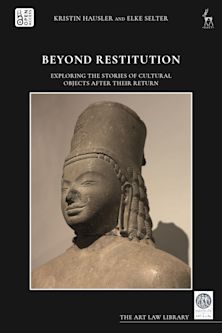- Home
- ACADEMIC
- Art & Visual Culture
- Art and Visual Culture - Other
- Arts and Politics of the Situationist International 1957–1972
Arts and Politics of the Situationist International 1957–1972
Situating the Situationists
Arts and Politics of the Situationist International 1957–1972
Situating the Situationists
You must sign in to add this item to your wishlist. Please sign in or create an account
Description
Arts and Politics of the Situationist International contextualizes the SI within a comprehensive aesthetic and theoretical framework that integrates its concepts and practical activities with previous critical thinkers, political activists, artists, and poets. The SI belongs to a history of radical gestures and cultural practices concerned with re-imagining everyday life and overcoming alienation. This book regards the SI as a critical interdisciplinary endeavor in the history of consciousness, particularly as a moment in an ongoing western-European trajectory of aesthetic negation dating back to the early nineteenth century. The chapters search for origins of the SI in French Symbolist poetry, Dada and Surrealism, Hegelian-Marxism, and Lefebvrian social theory in an effort to provide a clearly-defined ‘something’ out of which the SI developed as an increasingly radical collective of artists, writers, and theorists.
Table of Contents
Acknowledgments
Introduction
Chapter One: French Symbolist Strategies in SI Aesthetic Practices
Chapter Two: Dada and Surrealist Strategies in SI Artistic Practices
Chapter Three: Hegelian-Marxism in SI Political Theory
Chapter Four: Urbanism in SI Social Theory
Conclusion
Bibliography
Index
About the Author
Product details
| Published | Oct 01 2021 |
|---|---|
| Format | Ebook (Epub & Mobi) |
| Edition | 1st |
| Extent | 302 |
| ISBN | 9781793647092 |
| Imprint | Lexington Books |
| Publisher | Bloomsbury Publishing |
About the contributors
Reviews
-
A most effective and timely reminder of how significant SI was and how serious an omission from our cultural and political consciousness forgetting or ignoring its impact would be. Tightly packed sections discussing its iconic texts, movements, objet d’art, and other symbolic representations are comprehensive in their scope and depth. Forcefully written, it brings to light a counter history of its time that helps us realize the creative power that was made manifest during this relatively brief moment.
H. T. Wilson, York University
-
In this lively and lucid monograph, Matthews locates the Situationist International at an intersection where literary, artistic, socio-political, and theoretical forces knot and tangle. Tracing the aesthetic and intellectual antecedents of the SI to the 19th century (from Hegelian-Marxism to Symbolist poetry) into the present, Arts and Politics of the Situationist International 1957–1972, is a vivid contribution to a body of research reconsidering the histories and tactics of revolt. Yet, Matthews is offering us much more than historiography. This book is also a nudge for an era sorely in need of renewing its aesthetic and revolutionary imagination. If the twenty-first century is indeed haunted by the ghosts of revolutionary dreams that failed to materialize, Matthews is a sober-minded necromancer raising the spirit of the SI’s visionary potentialities. Arts and Politics of the SI may very well inspire the reader to put down the book and pick up a brick.
Andrew C. Wenaus, University of Western Ontario
-
The specter of the SI haunts us since its zenith in the late 1960s. If so, perhaps a ‘hauntology’ as regards its impact and continuing relevance is appropriate, and this is precisely what Matthews has accomplished. Written with elegance and precision, this book provides us with an extraordinarily well-rounded image of the SI, especially by focusing on under-examined influences on their ideas and provocations, such as the French Symbolists. The SI emerging from these pages is no museum relic, but a ‘successful failure’ reminding us that a ‘Northwest passage’ out of our benighted 21st century has not yet been discovered.
Michael E. Gardiner, Western University

ONLINE RESOURCES
Bloomsbury Collections
This book is available on Bloomsbury Collections where your library has access.


































